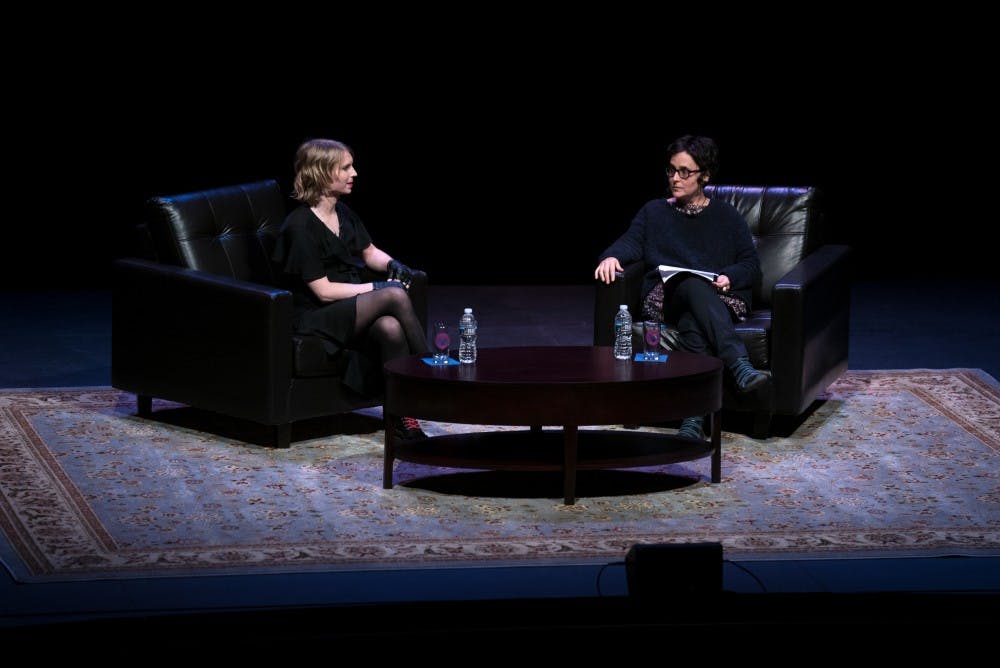
Hundreds of Penn students and faculty members packed into the Annenberg Center's Zellerbach Theatre on Nov. 29 to hear from Chelsea Manning, a controversial LGBTQ rights activist and former United States Army soldier, who was sent to prison after releasing sensitive military documents to WikiLeaks.
In 2011, Manning was convicted and sentenced to 35 years in military prison for her controversial decision to release United States military war logs — a total of 750,000 documents from the Afghanistan and Iraq wars that revealed human rights abuses. While incarcerated, Manning openly identified as a transgender woman and transitioned. Since then, and after her early release from prison this year, she has become an advocate for government transparency, as well as queer and transgender rights.
During the event, "A Conversation with Chelsea Manning," McGill University Professor Gabriella Coleman, who holds the Wolfe Chair in Scientific and Technological Literacy, moderated and prompted Manning with both theoretical and personal questions. The Annenberg School for Communication hosted the event with eight other sponsor groups, including the LGBT Center and the Political Science department.
Manning said that despite being coerced into prison labor and dealing with few resources, she tried to dedicate her time to writing op-eds and learning about United States contract law as much as possible. Coleman also pointed out Manning's Twitter account, which prompted a round of applause from the audience. Manning, who began to use Twitter in prison through outside help, now has 314,000 followers.
Manning described her lifelong struggle with coming to terms with her gender identity and her decision to leak the documents. She ultimately ended the conversation on a final note regarding the need for government transparency.
"Leaders, especially institutions, actually don't understand the systems that are being developed underneath them," Manning said. "They often will sometimes deliberately misunderstand in order to justify an act. They'll pick and choose outputs from an algorithm to justify a decision they've already made."

Once Coleman opened the floor for questions, extended lines formed. The first audience member, who identified as a veteran, asked Manning to justify her controversial document leak and asked whether she had any regrets. Others probed Manning on various issues, from her anti-capitalist views to her thoughts on net neutrality and the gray area of government transparency.
Manning responded by defending herself and saying she stood by all of her past decisions.
A researcher in the fields of technology, hackers, and digital activism, Coleman expressed her admiration for Manning.
"She's very young and has a lot of energy and many different interests and is an outsider that connects different dots," Coleman said.
College sophomore Claudia Silver, who was already familiar with Manning's work and her life story, reflected on hearing from someone whom she greatly admired.
"With her experience in prison being trans, especially when the prison system is dedicated to keeping things underground and being under such extreme state control, I think she has a lot of amazing things to say," Silver said.
College sophomore John Mullan said that the event was not what he expected.
"I kind of expected it to be more about whistleblowing and the military and that line instead of her activism with trans issues," Mullan said. "That wasn't a bad thing. I learned more about the subject through that."
The Daily Pennsylvanian is an independent, student-run newspaper. Please consider making a donation to support the coverage that shapes the University. Your generosity ensures a future of strong journalism at Penn.
Donate




